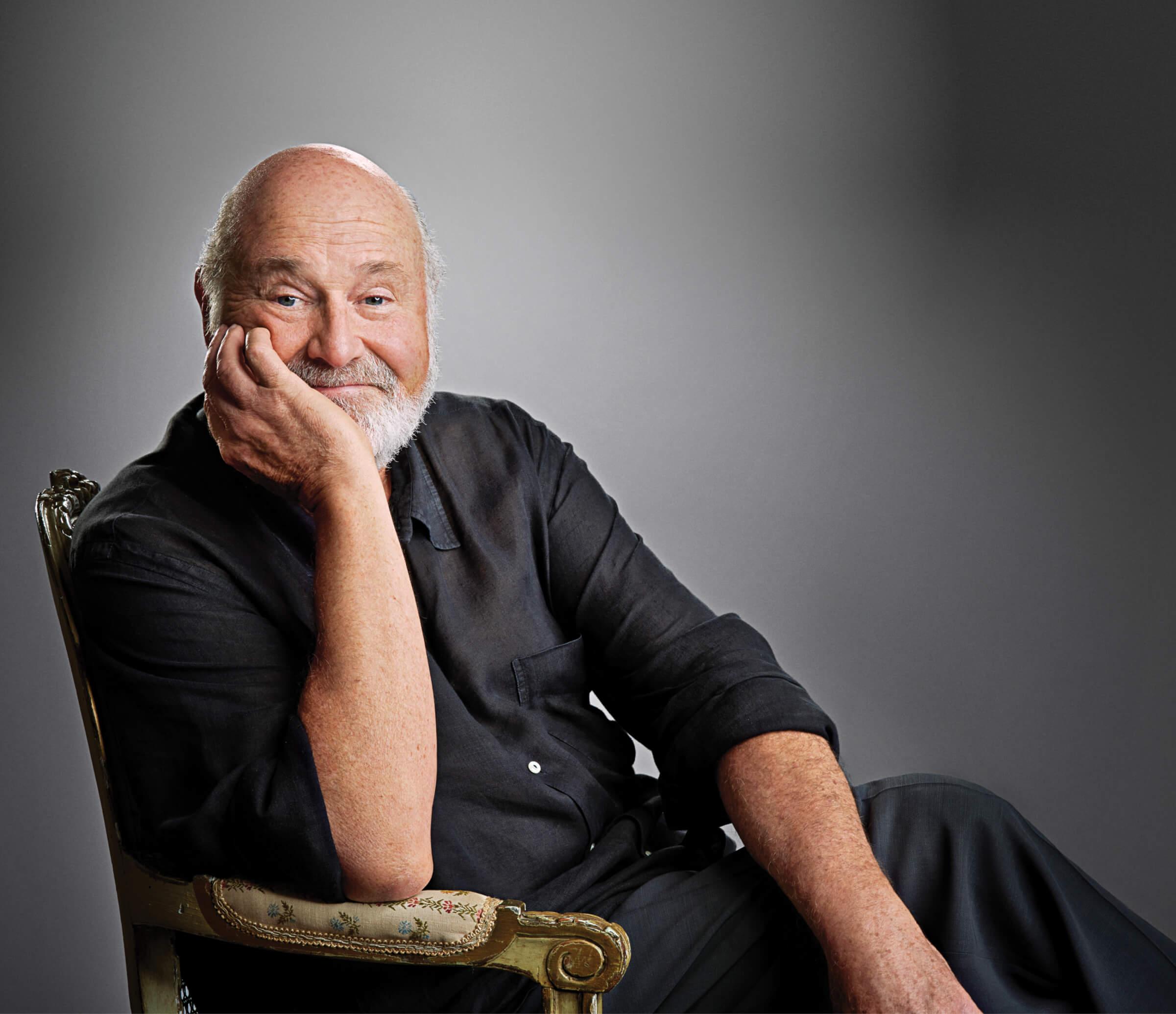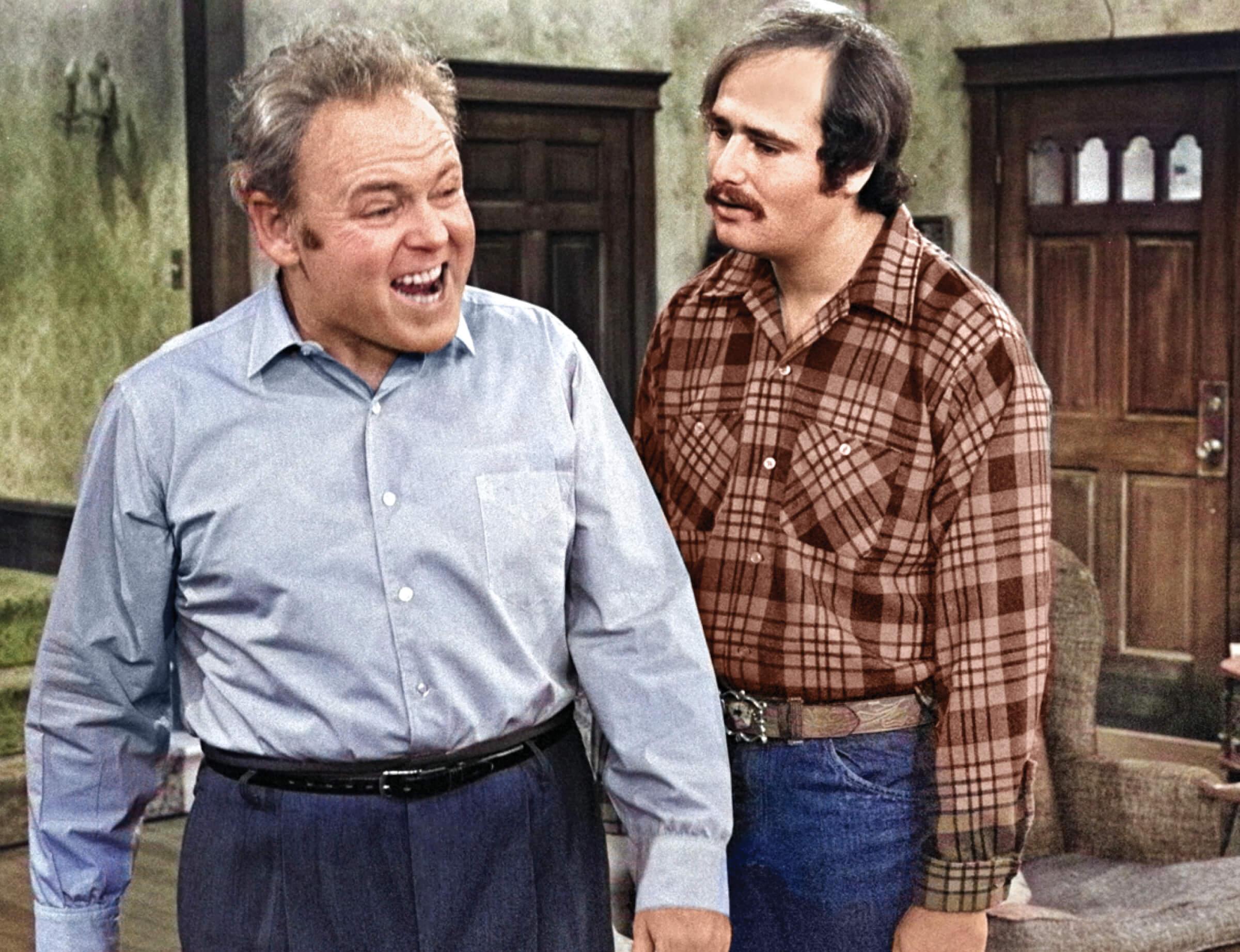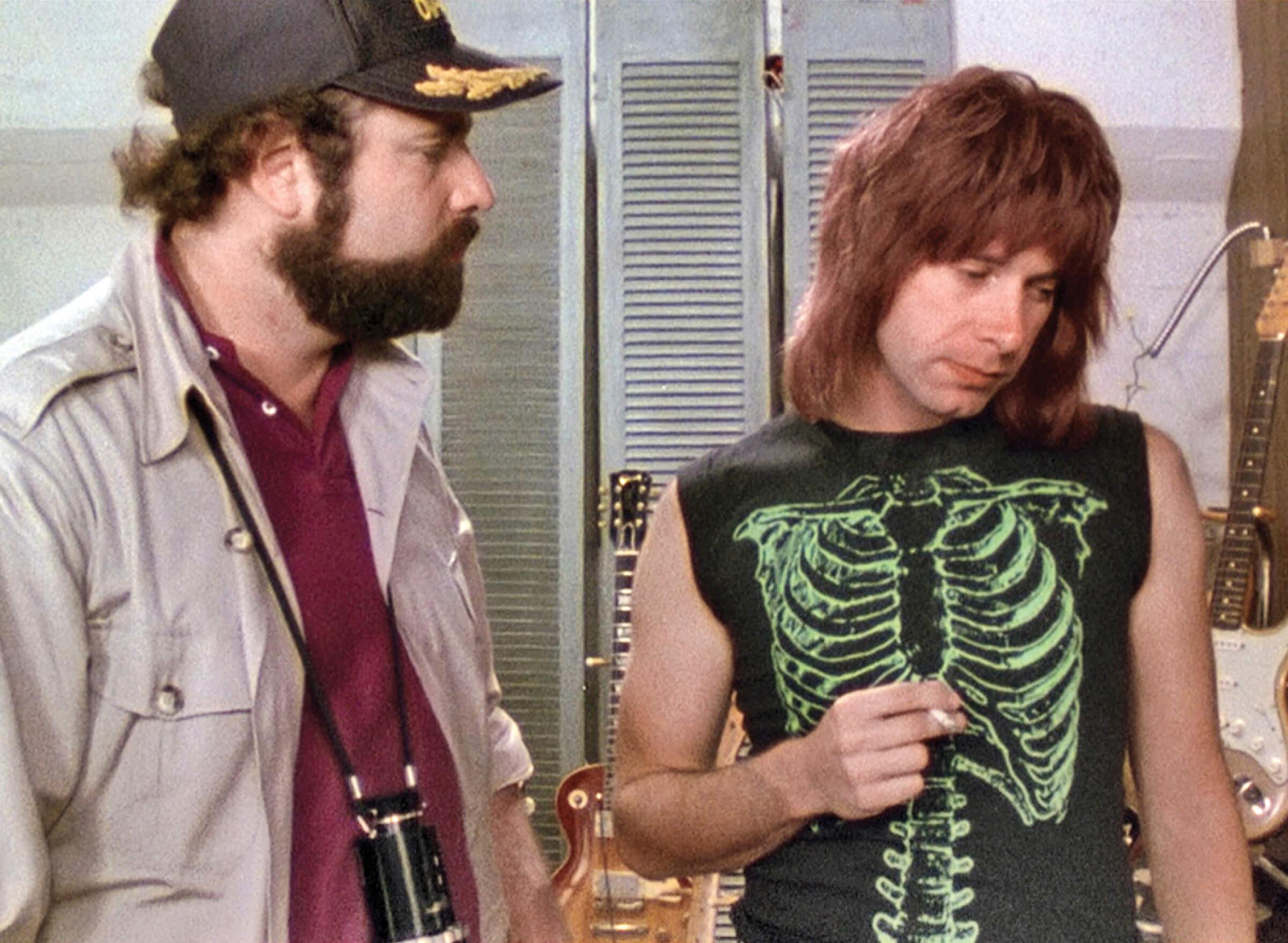Q&A Rob Reiner
“I USED TO JOKE THAT IF I EVER WON THE NOBEL PRIZE, PEOPLE WOULD SAY THAT MEATHEAD WON THE NOBEL.”
—ACTOR AND DIRECTOR ROB REINER, 78, HAS BEEN IN THE BUSINESS OF LAUGHS LITERALLY SINCE BIRTH. WITH A NEW FILM OUT—SPINAL TAP II—HE’S STILL AT IT
INTERVIEW BY A.J. BAIME

Your father was Carl Reiner, who created The Dick Van Dyke Show and directed hit comedies. Was your childhood normal?
I thought it was normal, because you don’t have anything to compare it to. Oddly enough, my father was on television before we had a television. We bought one in 1951 so we could see him on Saturday nights. It wasn’t until I went to my friends’ houses that I found it wasn’t as funny over there. Because, you know, Mel Brooks was around our house, and Norman Lear. Groucho Marx. The Monty Python people. Everybody that made people laugh came by the house.
Did your father pressure you to go into show business?
I think he was nervous about me getting into the business because the guy had 12 Emmys and was an unbelievable success. Was it tough to live up to? I remember my parents told me a story that when I was a kid, I wanted to change my name. And they thought, Oh, poor kid. He’s worried about living in the shadow. They asked me what I wanted to change my name to. And I said, Carl! Because I wanted to be just like my father.
Many got to know you as Meathead, Archie Bunker’s son-in-law on All in the Family. Do people still call you Meathead?
I do get called that sometimes. I used to joke that if I ever won the Nobel Prize, people would say that Meathead won the Nobel.
Why do you think people still talk about that show after all these years?
We presented both sides pretty equally. It was the way we played off of each other that made it funny. The creator, Norman Lear, wanted the conversation to happen, for people to talk afterward. At the time, we were a country of about 200 million people, and every Saturday, we got 40 to 45 million people watching that show. That meant you had 40 to 45 million people having a shared experience every week. And they would talk about it after. I don’t think they would allow that show today. It’s too politically incorrect.


You have directed hit movies for decades, including When Harry Met Sally..., Misery, A Few Good Men and This Is Spinal Tap. Do any stand out for you?
The one that means the most to me is probably Stand by Me [a 1986 adaptation of a Stephen King novel] because it was the first time I made a movie that was very separate from anything my father would’ve done. My father trafficked in satire. Stand by Me was the first time I did something that was really an extension of my personality. It had humor in it, but it also had emotion and some nostalgia and all of that. I wouldn’t say it was the best. That’s for other people to decide. But that one means the most to me.
This Is Spinal Tap came out in 1984, but it wasn’t successful right away, correct?
People didn’t understand it. They thought it was a real documentary. We screened it in Dallas for the first time, and people said to me, “Well, I don’t get this. Why would you make a movie about a band that nobody’s ever heard of? And one that’s this bad!” I tried to explain that, well, it’s satire.
The film evolved into a beloved movie. People quote it every day. Did you know that would happen?
We had no idea! It became this cult classic. Like you say, people quote it. You know, “These go to 11.” Or “There’s a fine line between stupid and clever.” Over the years, it kept growing. It has been put in the Library of Congress and into the National Film Registry. Recently, Time Out listed the best comedies of all time, and This Is Spinal Tap was No. 1. I was blown away. We get approached by rock stars saying it’s a staple on their tour bus. Sting told me that he’s seen it many times and every time, he doesn’t know whether to laugh or cry.
Spinal Tap II is about the band re-forming for one last show after a 15-year hiatus. Paul McCartney and Elton John have big roles. Were you worried about being able to capture lightning in a bottle again?
You’re always concerned. But we’re all steeped in improvisation. That’s the world we come out of. So can we make that horse run again? There are some big laughs in the new movie.
Does the new film have specific things to say about reinvention?
It basically says: No matter how old you are, if you can still do it and still enjoy doing it, then do it. I asked Paul McCartney about this. I said, “There’s you, Mick Jagger, Elton John, and you still like to perform. What is it about you guys? Is it that you just love the music? And you love performing?” And he says, “Yeah. And the drugs.” [A joke line in the new movie.] The point is, these guys just love doing it. If they’re given an opportunity, they’ll get in front of an audience and play.
See more from Rob Reiner, including a video chat, at aarp.org/membersedition.
FROM TOP: SCOTT MCDERMOTT/TRUNK ARCHIVE; CBS/GETTY IMAGES; COURTESY FATHOM ENTERTAINMENT